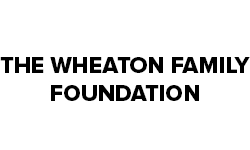CITIZENSHIP STUDIES 30-LEVEL: CITIZENS CONNECTED TO SELF, COMMUNITY, AND PLACE
Part A
Broad Area of Citizenship: Social Studies/History/Native Studies
Citizens connected to Self, Community, and Place value and demonstrate a commitment to understanding the connections between people, the societies they create, and the environment in which they live. They strive to right inequities of social injustice.
Students begin by examining causes of injustice and the considerations that must occur when trying to redress wrongs (10). They move to understanding the implications of injustice at the international level (20) and consider the additional complications of working with many countries with differing ideologies and political structures. In the final year of study (30) students continue to examine the historical and contemporary issues that arise from injustice and the structures, societal, and political that perpetuate ongoing inequities, including accepting the status quo.
Overview and Desired Results of Citizenship Study
30
- Social Studies students will consider the causes of marginalization and approaches to support and achieve inclusion and social justice.
- Historical Studies students will consider the evolution of and the effectiveness of approaches of society in addressing social justice issues. (gender equity, racism, economic inequality)
- Native Studies students will consider the causes of marginalization and approaches to support and achieve inclusion and social justice.
Enduring Understandings of Citizenship Study
- Injustices of today have roots in the past.
- Canadian society is challenged to manage the co-existence of diverse worldviews.
- Canadian citizens work to achieve a balance between rights and responsibilities through learning and action.
- Canadian society has inequities and elimination of these is beneficial for all Canadians.
- For each individual, becoming aware of racism in Canadian society is an evolutionary process and a precursor to change.
- As citizens of local, national, and global communities, Canadians are conscious, self-reflective, and critical of their own beliefs and actions and seek to make positive change.
- Citizens show flexibility of mind.
- Enduring understandings and questions stimulate thinking, guide the inquiry and are linked to outcomes.
- These questions point to the “big ideas’ in the area of inquiry and should be considered and reconsidered as the inquiry progresses.
- Deliberation of these understandings forms the evidence of learning at the end of study.
Knowledge and Skill Development
- Criteria to identify Social Justice Issues
- Strategies to affect change
- Systemic elements of injustice
Students will be able to:
- Identify and analyze social justice issues
- Compare and contrast strategies to address those issues
- Investigate the underlying causes of social injustice
Essential Questions
- What is social justice?
- Why do injustices exist?
- What responsibility do individuals have to address injustices in society? How could this be accomplished?
- What responsibilities do governments have to address injustices in society? How can this be accomplished?
Saskatchewan Curriculum Concept Connections
Students will:
- examine the importance and purpose of community stewardship and take action at provincial, national, and global levels;
- explore the reasons for and implications of engagement and non-engagement as citizens;
- examine the extent to which different sectors of the population feel that their interests and well-being are being enhanced and secured within the existing political structure and examine the factors that are creating the rich/poor divide;
- examine the challenges of creating equity in society where socio-economic differences are increasing and reflect on the processes required to achieve change; and,
- examine the role of government in addressing societal well-being.
© 2024 Concentus Citizenship Education Foundation Inc. All Rights Reserved.









